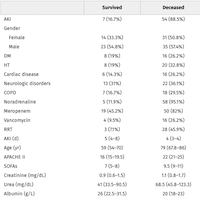Accuracy of Heparin-Binding Protein in Diagnosing Sepsis
journals.lww.com
The diagnostic ability of heparin-binding protein is favorable, demonstrating both high sensitivity and specificity in predicting progression to sepsis in critically ill patients. Future studies could assess the incremental value that heparin-binding protein may add to a multimodal sepsis identification and prognostication algorithm for critically ill patients.
Two reviewers independently extracted data elements from the selected studies. A bivariate random-effects meta-analysis model was used to synthesize the prognostic accuracy measures. Risk of bias of studies was assessed with Quality Assessment of Diagnostic Accuracy Studies 2 tool.
We identified 26 studies with 3,868 patients in the meta-analysis. Heparin-binding protein had a pooled sensitivity of 0.85 (95% CI, 0.79–0.90) and a pooled specificity of 0.91 (95% CI, 0.82–0.96) for the diagnosis of sepsis.
There was low heterogeneity between the studies (I2 = 12%), and no evidence of publication bias was detected. Heparin-binding protein had a higher sensitivity and specificity when compared with procalcitonin (0.75 [95% CI, 0.62–0.85] and 0.85 [95% CI, 0.73–0.92]) as well as C-reactive protein (0.75 [95% CI, 0.65–0.84] and 0.71 [95% CI, 0.63–0.77]).
Serial measurements of heparin-binding protein also showed that heparin-binding protein levels rose significantly at least 24 hours before a diagnosis of sepsis.















